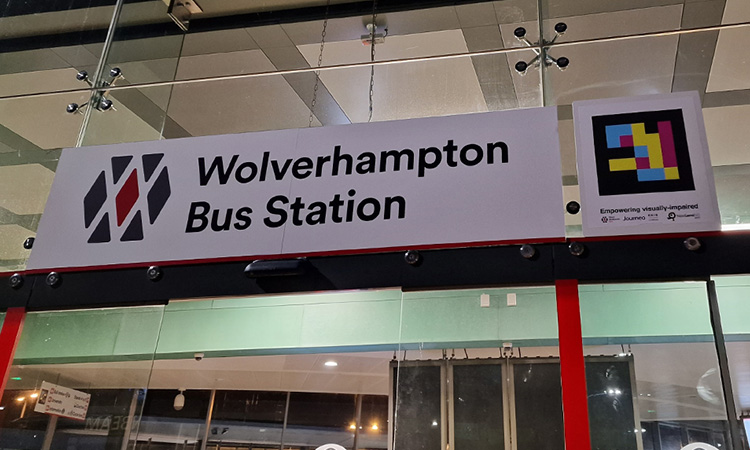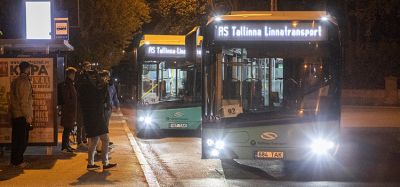Wolverhampton Bus Station trials innovative technology to enhance accessibility
- Like
- Digg
- Del
- Tumblr
- VKontakte
- Buffer
- Love This
- Odnoklassniki
- Meneame
- Blogger
- Amazon
- Yahoo Mail
- Gmail
- AOL
- Newsvine
- HackerNews
- Evernote
- MySpace
- Mail.ru
- Viadeo
- Line
- Comments
- Yummly
- SMS
- Viber
- Telegram
- Subscribe
- Skype
- Facebook Messenger
- Kakao
- LiveJournal
- Yammer
- Edgar
- Fintel
- Mix
- Instapaper
- Copy Link
Posted: 6 April 2023 | Intelligent Transport | No comments yet
In line with TfWM’s strategy to improve passenger accessibility, Wolverhampton Bus Station’s trial of smart codes aims to provide customers with immediate access to wayfinding details and live travel information on mobile phones.


Credit: West Midlands Combined Authority
The West Midlands Combined Authority (WMCA) has announced that Wolverhampton has become one of the UK’s most accessible bus stations, after joining New York and Barcelona in testing the latest, inclusive technology.
Transport for West Midlands (TfWM) has unveiled new smart codes at Wolverhampton Bus Station, giving passengers with immediate access to wayfinding details and live travel information on their mobile phones. The six-month trial is part of a regionwide strategy by TfWM to improve accessibility, create a fairer society and tackle the climate emergency.
“It’s crucial that everyone, regardless of their personal circumstances, can easily access and use our region’s public transport. That’s why we spend tens of millions of pounds each year providing concessionary travel for older people, children and people with disabilities, as well as millions more on accessible transport more generally,” said Steven Hayes, TfWM’s Head of Network Transformation. “We are looking forward to working with NaviLens to see how these new smart codes can further improve accessibility for everyone using the transport network.”
The NaviLens codes are implemented to make the bus station smarter and more inclusive. Using the company’s free apps and the camera on a phone, codes are detected automatically, and the details are presented to a user on screen or read aloud.
New initiative boosts public transport access for people with hidden disabilities in Wales
For blind and partially sighted passengers, the codes present an accessible alternative to traditional signage, providing context and the ability to independently navigate the station. While sighted passengers can equally benefit from using the codes to navigate the station, including automatically translating station information in more than 30 languages.
At Wolverhampton, the codes are installed at floor level decision points along the tactile path, providing timely and relevant wayfinding information. Codes are also positioned on walls at all points of interest ,providing context and improved situational awareness. This combination enables personalised directions around the station, details of how to access and use amenities together with real-time departure information for every bay and bus service.
John Worsfold, Solutions Innovation Lead at the Royal National Institute of Blind People (RNIB), explained: “Travel is an essential part of everyday life and we are delighted to have the opportunity to collaborate with industry partners, pioneering scalable solutions that empower blind and partially sighted passengers to travel independently. This project uses NaviLens technology which has been specifically designed to enable blind and partially sighted people to be able to access and locate information and interact with the environment around them.”
The trial at Wolverhampton Bus Station is scheduled to be in place until September 2023.
If you liked this, you may also be interested in:
▶ Coventry University launches £20 million National Centre for Accessible Transport
▶ The people behind the wheel: Quemuel Arroyo’s story, Metropolitan Transportation Authority
Related topics
Passenger Accessibility, Passenger Experience, Public Transport
Related modes
Bus & Coach
Related cities
Wolverhampton
Related countries
United Kingdom
Related organisations
Royal National Institute of Blind People (RNIB), Transport for West Midlands (TfWM), West Midlands Combined Authority (WMCA)
Related people
John Worsfold, Steven Hayes








